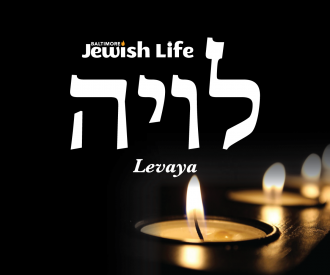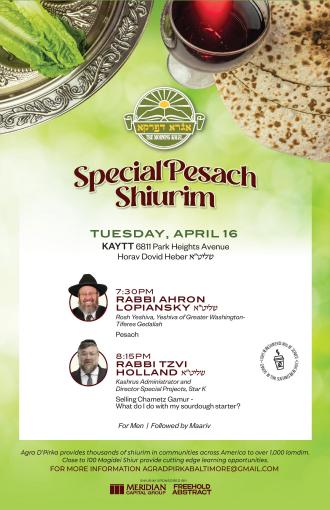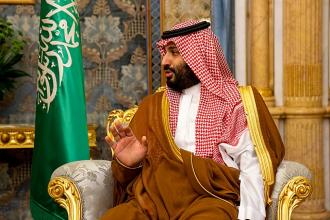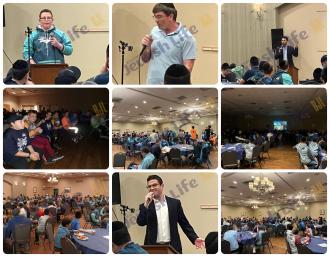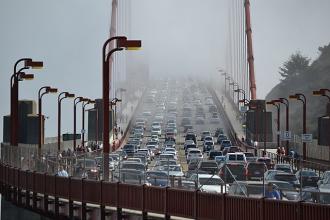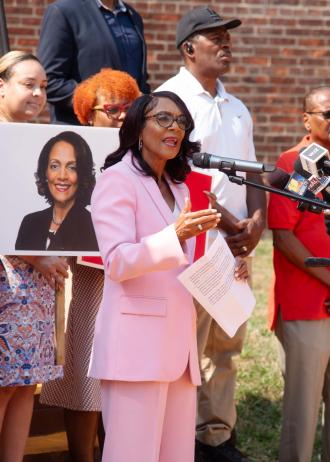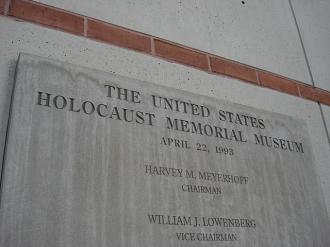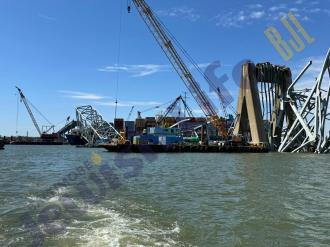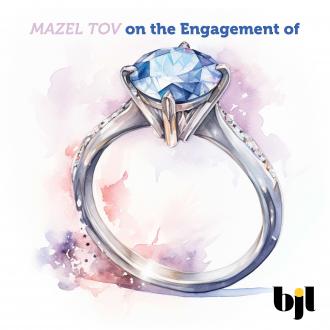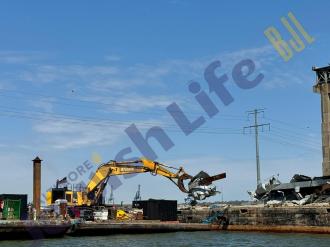I am not shy about offering my opinions on a wide array of Jewish and Torah topics, but I do try to leave my personal experiences out of my writings. On occasion, I deviate from this general rule when I feel the individual insight is relevant to the public. For this Parsha, which discusses the rituals which follow childbirth, I am again taking such a liberty. Raising children in today's environment is perhaps more difficult than ever. There was a time not too long ago when parents and their homes were the principal influences on a child's young life. Such is not the case today. In the 1960's, when day school education became the norm for observant families, a large amount of influence was surrendered to our schools and the other children who attended. Fast forward 40 more years and the “information” age has penetrated every aspect of our lives.
My wife and I tried to keep up with the ever changing technologies and the challenges they presented as we raised our children. One example, as cell phones became commonplace, we discussed the appropriate age at which our children should have their own phone. This is a decision with many considerations. Phones today can be conduits to all sort of harmful matters. When can a parent feel comfortable that their children will not use the phone for purposes which may present a danger? How would they handle receiving an anonymous text message which may seem benign? How mush safer is the child having a personal phone with them if they are in an emergency situation? Our conclusion back in 2005 was that a young person should have their own phone when they get a learners permit for driving. The benefits at that time seemed to outweigh the dangers and by the time children have reached the age of 16, hopefully you have imparted to them the process of healthy decision making. The world had survived without cellphones for thousands of years, requiring children to wait until they were young adults to have one seemed a reasonable approach.
The world had other ideas. By 2007, text messaging had become the primary method of communication between young teens. My son missed a basketball game on a Sunday afternoon because he did not get the mass text which was sent out by one of the other kids in the class. True, they could have called the house phone but the point is that they don't. Since most 14 year olds had their own phone, our decision no longer lived in a vacuum. We were forced to reassess based on the reality which existed. That reality was that most parents were providing phones at a younger age and being one of the few without one caused some inconveniences. Accordingly, we decided that we would have a shared phone for our younger teens for use in the house only. The phone remained in the kitchen at all times but that way if text messages were being sent out, our young teens would not miss them.
A few years ago, my family had the privilege to again visit Eretz Yisroel. A large bonus of the trip was to see our 19 year old son who was learning for his 2nd year in Yehivas Mircaz Hatorah. The prior year, after his first year in the Yeshiva, he made a siyum on Meseches Gittin. A tremendous accomplishment. This year, shortly before our visit, he made a siyum on Meseches Kesubos, another milestone achievement. We talk regularly and it was obvious that he was growing tremendously in Torah knowledge and accomplishment. Partially due to my encouragement, he had incorporated significant halachic study into his daily sedarim. We were talking recently about his schedule which begins with a 5:30 AM workout, shower and davening and concludes after a whole day of learning at 1:30 AM each night. I asked him about the length of the day and the few hours for sleep and he responded quite profoundly, “Abba, in a couple years I am going to have to go to school, earn a Parnassa and take care of a family. These are the only years where I can focus exclusively on learning. I want to take advantage.”
When I visited the Yeshiva, I met his Rebbe. A great Talmid Chacham as was his Rebbe the previous year. While I was spending a few minutes talking with R' Lipner another Rebbe walked over to us. He had seen me walk into the Bais Hamedrash with my son and asked if I was his father. I replied that I was. He then said, “I am the night Seder Rebbe in the Yeshiva. My job is to be here each night until the last Bochur leaves, typically around 1:30 – 2AM. I don't even know your sons name but I can tell you that he is one of the last 4 guys here each night. You should know he is learning the entire time.”
I won't deny taking tremendous pride in his growth – after all that is why we sent him there. But even though he was learning with great dedication, I felt the obligation to impart some mussar upon my departure. I told him, “Mommy and I are extremely proud of how you are learning and the dedication and commitment you have shown. We are happy to see you thriving in this Yeshiva precisely because we value Torah study and knowledge. I do want to leave you with 2 thoughts. As your father, it's still my place to help you grow. First, Hashem did not give you this great mind and charisma so that you can blindly follow someone else, even if it is a great Talmid Chochom.[1] Your growth has to be with the aim to develop your own knowledge so you can make your own decisions and be Mashpia on other people in a positive way. Second, we value Torah study as a goal unto itself as well. But remember, Rashi in Bechukosai says 'the reason we learn Torah is so we know how to do the Mitzvos.' You cannot learn all day long and think you are exempt from everything else. You must value and look for opportunities to do Chesed and help others”. As I left Eretz Yisroel I had no delusions that my son was going to suddenly alter his daily schedule to incorporate my suggestions. Nevertheless, I hoped that it would at least leave an “impression” upon him about some of our other values.
At the youngest of ages children tend to inherently mimic their parents behavior. Regardless of the lessons to which you pay lip service, they tend to learn much more from what they see. As they mature into adults, their tendency to mimic is overshadowed by their ability to reason, the knowledge they have gained and the outside influences in their lives. It is at that time the relationships you have built over their lifetime allow, or disallow your continued influence. In order to best preserve and build those relationships, children need two things. Unconditional love and security. Security does not mean providing their every wish and desire. It means making the sure the child goes to sleep each night knowing that they are being taken care of. If you can provide these two things most children will flourish and know that they can always count on you when they are adults as well.
It is a complicated world right now. As parents we must do everything we can to ensure that our children know that no one will ever have their best interests in mind like we do. This comes from setting appropriate boundaries and making sound evaluations about what and when they can safely be exposed to the various perils which are out there.[2] Most critical is to teach them that everything can be used for good or for bad and the greatest challenge is helping them learn how to make those decisions and distinctions.
A few months later my son’s plane arrived in Washington for the Pesach break. He looked great and Chaya and I were very happy to see him. After enduring the shlep home from Dulles Airport, I asked him, mostly out of curiosity, if he remembered the two things I had mentioned to him when we had visited him? Remembering them in and of itself would have had some value. He replied, “Yes, I did. As a matter of fact because of what you said I began participating on Thursday nights in packing up and loading Shabbos packages for a local Tzedakka organization.” Wow. Simply by imparting pride and delivering a suggestion in a constructive tone, I was still able to have an influence on my 19 year old son whom I see now for perhaps 10 weeks out of the year. It was a very good day.
[1] For several reasons, I have become increasingly concerned over the epidemic sweeping over people of “Gadol Worshiping”. First, today you can almost believe nothing said in any Gadols name because so many in their inner circle have taken to issuing edicts in the Gadol’s name which they did not authorize and were not aware. Second, much of this brainlessness is a deliberate act to absolve oneself from responsibility for even the most basic decisions. Which car I should buy is not an appropriate question for which to seek Rabbinic guidance. Indeed, the Torah warns us explicitly that even if a parent tells one to do something against the Torah, you may not listen. We MUST raise our children to equip themselves with basic halachic and Torah knowledge so they can make day to day decisions for themselves.
[2] This also flies in the face of the modern trend to insulate our children from every danger in today’s modern world. This absolutely stifles there ability to learn how to use things in a positive way. I am not suggesting that we let toddlers play with matches or allow young teens to be on the internet unsupervised or without appropriate filters or safeguards, but designing plastic bubbles around them prevents parents from teaching them right from wrong and how to use things in a positive way.

